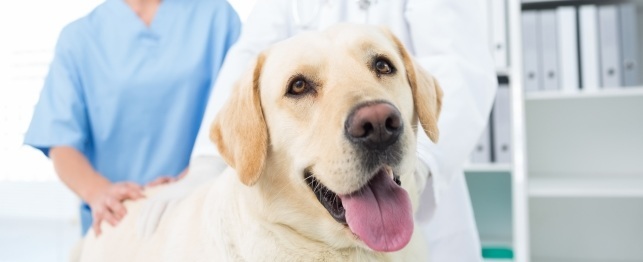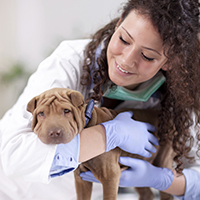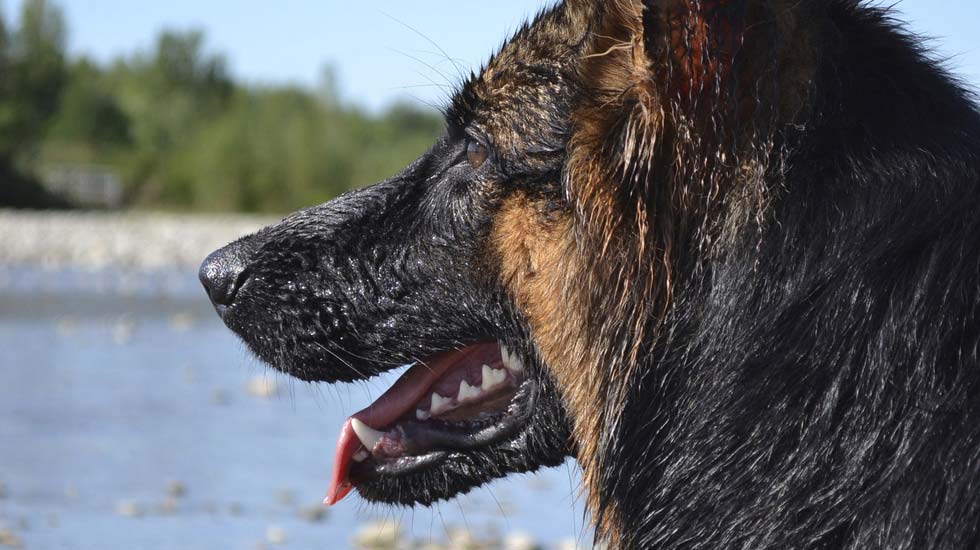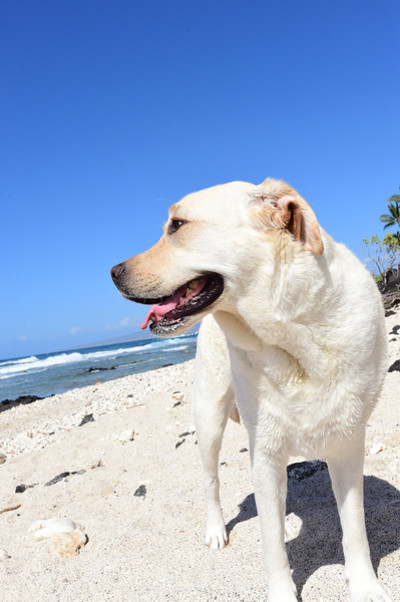
 What is it?
What is it?
Lung cancer in dogs, luckily, is very rare. Only 1% of canine cancer diagnoses are lung cancer. Primary lung cancer, which begins in the lungs, is even rarer, but has a much lower canine life expectancy. Secondary lung cancer, the more common form, is caused by cancers in other parts of the body metastasizing or spreading. In both cases, canine lung cancer symptoms are the same, though they may be harder to identify in secondary cancer cases, since the primary cancer would have similar symptoms. Keeping a close eye on a sick dog’s symptoms is important in catching this cancer early.
Symptoms
Canine lung cancer symptoms include symptoms common to other cancers, and common to other lung diseases. Lethargy, or low energy, is the most prevalent symptom of all cancers. Chronic coughing is the more prevalent symptom of lung cancers and may include phlegm and even blood. This is a symptom that is only tied to serious health problems in dogs, so a trip to the vet is warranted even without the presence of other symptoms. Other canine lung cancer symptoms include shortness of breath and a marked loss of appetite. Appetite loss is another symptom common to other cancers, but respiratory issues are mostly specific to lung cancers. Many of these symptoms can be noticed with normal attention to your pets and do not require a closer than normal eye. Dogs that are already sick, or of advanced age, should be monitored more closely, but lung cancer is, again, uncommon and shouldn’t be the main problem of concern.
Treatment
Once your vet has confirmed the canine lung cancer symptoms your dog is presenting as lung cancer he/she will refer you to a veterinary oncologist. This is a vet that specializes in the treatment of many different forms of cancer. Since canine lung cancer acts similar to human cancers, canine lung cancer treatment is also similar. Treatments such as radiation therapy, surgery, chemotherapy, and drug treatments are among the many available treatments for your dog. Much like human cancer though, canine cancers are tough to fight and will require dedication and will from both you and your dog. In the end, canine lung cancer life expectancy will depend on this dedication.
 How to Have a Trauma-Free Vet Visit For Your Dog
How to Have a Trauma-Free Vet Visit For Your
How to Have a Trauma-Free Vet Visit For Your Dog
How to Have a Trauma-Free Vet Visit For Your
 Average Lifespan of a Dog depends on Size
Large Dogs Seem to Age at a Fast Pa
Average Lifespan of a Dog depends on Size
Large Dogs Seem to Age at a Fast Pa
 Dog Wellness - People Things To Avoid
While we dog lovers have hearts three time the normal siz
Dog Wellness - People Things To Avoid
While we dog lovers have hearts three time the normal siz
 Easing a Dog’s Passing
Weighing the Decision to Euthanize
Easing a Dog’s Passing
Weighing the Decision to Euthanize
 Summer Safety Tips For Dogs
Hot weather can make us all uncomfo
Summer Safety Tips For Dogs
Hot weather can make us all uncomfo
Copyright © 2005-2016 Pet Information All Rights Reserved
Contact us: www162date@outlook.com